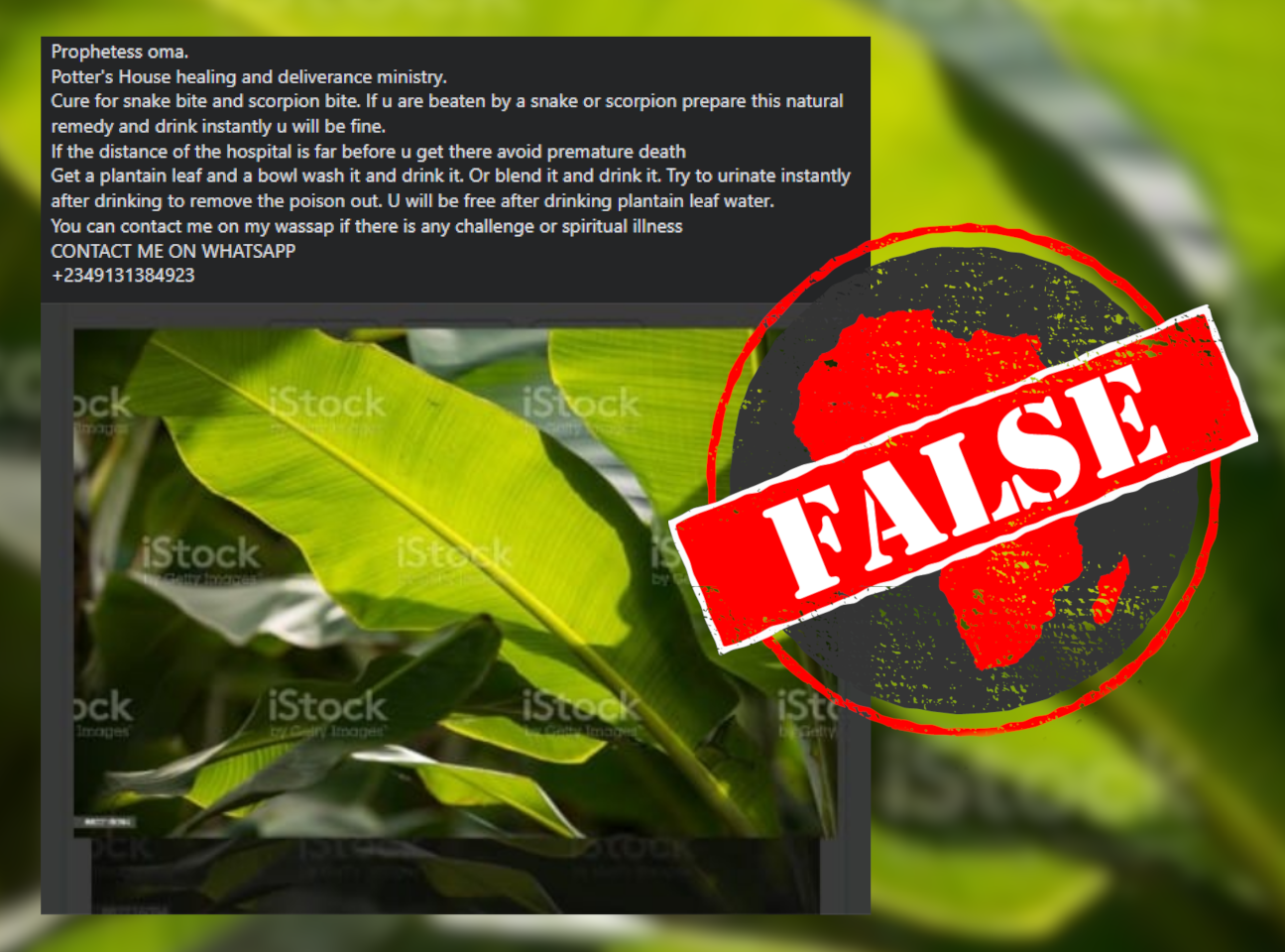IN SHORT: A Facebook post circulating in Nigeria claims that the leaves of the plantain plant can treat a venomous snake bite or scorpion sting. But antivenoms, administered by a healthcare professional, are the only known effective treatment for venomous bites or stings.
In a video circulating on Facebook in Nigeria in April 2023, a person is seen holding what they say are plantain leaves.
They go on to say that one of the benefits of the leaves is that they neutralise the poison from a snake. They instruct viewers to squeeze the juices out of the leaves and drink so that "within five minutes … the poison gon’ die".
The video has been viewed over 133,000 times, with many users thanking the original poster in the comments section for the advice.
The same claim was made here, here and here.
But can plantain leaves be used as a remedy for venomous snake bites and scorpion stings?

Expert says antivenom ‘only specific therapies for snakebites’
Plantains are a tropical fruit plant and a variety of banana of the genus Musa. Some studies have found that both the fruit and the leaves of the plantain plant have various medicinal and nutritional benefits.
Plantain weed or leaf is also a common name for the Plantago plant family but these are unrelated to banana-like plantains.
Africa Check debunked a similar claim in 2022, that a plant remedy had been found to treat snake bites.
At the time, Prof Nicholas Casewell, director of the Centre for Snakebite Research and Interventions at the Liverpool School of Tropical Medicine in the UK, told us that "the only specific therapies for snakebites are antivenom".
Antivenom is a treatment which counters the effects of venom, the poison that a creature such as a snake or spider puts into its victim when it bites or stings.
However, antivenoms are often not readily available when people are bitten by snakes, particularly in underdeveloped regions of the world.
No scientific evidence for plant-based antivenom
This 2022 journal article reviewed scientific studies on the efficacy of medicinal plants for venomous snakebites.
The review found that there was no plant-based antivenom available, but called for more research on plants’ neutralising potential against venom.
A 2016 study looked specifically at scorpion stings and found that because scorpion venom is toxic, antivenoms are a necessity.
And much like in the case of snakebites, the study warns that using traditional herbal treatments may delay medical treatment, causing more harm than good. Antivenoms need to be “administered early to remove the venom as soon as possible” it says.
If you are stung by a scorpion it is recommended that you consult a qualified healthcare professional.
There is no evidence that leaves from the plantain plant neutralise snake or scorpion venom.
Republish our content for free
For publishers: what to do if your post is rated false
A fact-checker has rated your Facebook or Instagram post as “false”, “altered”, “partly false” or “missing context”. This could have serious consequences. What do you do?
Click on our guide for the steps you should follow.
Publishers guideAfrica Check teams up with Facebook
Africa Check is a partner in Meta's third-party fact-checking programme to help stop the spread of false information on social media.
The content we rate as “false” will be downgraded on Facebook and Instagram. This means fewer people will see it.
You can also help identify false information on Facebook. This guide explains how.


Add new comment